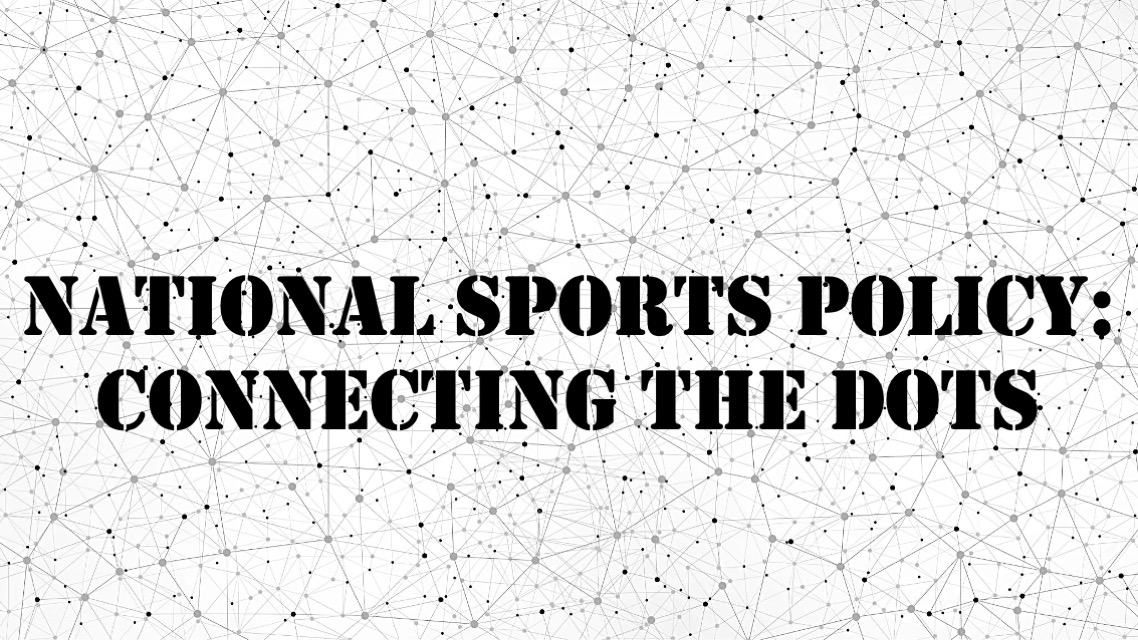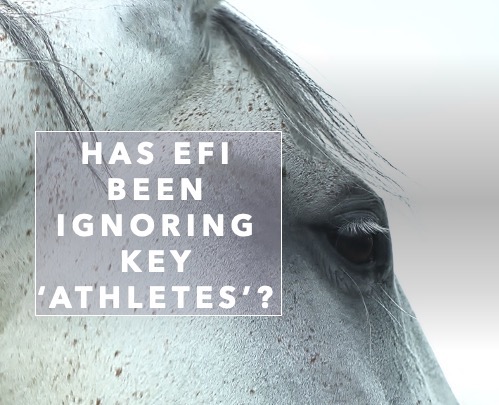The Ministry of Youth Affairs and Sports has shared a Draft National Sports Policy 2024 on its website and invited comments from various stakeholders. While there will be many who share their thoughts on the DNSP 2024, it is important to cast a glance at its evolution over the four decades since the first National Sports Policy was tabled in Parliament in 1984.
The Ministry of Youth Affairs and Sports is empowered, among other things, to lay down the National Sports Policy by the second schedule of Order of the Government of India (Allocation of Business) Rules, 1961. Drawing on this power, the Ministry of Education, the Ministry of Human Resource Development and the Ministry of Youth Affairs and Sports have drawn policies.
Here’s a timeline of the National Sports Policy in various shapes and forms.
1967
All India Council of Sports Panel suggestions
Make AICS the umbrella organisation to coordinate sports administration
Create a National Sports Fund to raise money
Strengthen Indian Olympic Association
Do away with multiple offices for NSF at State and National levels
Place selection of National teams in hands of former internationals
Redesignate NSF Asst. Secretaries as Administrative Secretaries
Manage foreign tours by NSF officials
Curb tendency among NSF officials to rush to Courts to settle disputes
Make athletes aware of their responsibility when representing the country
Build second string of athletes by giving juniors competitive experience
IOA and NSFs should lay down basic norms for teams going abroad
Maintain basic standards for international events in India
Need for clean and good State Sports Associations which must focus on development of sport in local educational institutions
State Sports Councils must coordinate sports activities in the State, supplement the work of State Sports Associations
Annual coaching camps held by State Sports Councils should be for 12-18 year age-group
Harness educational institutions to develop sports and games
Establish National Youth Clubs in rural and urban areas with students and non-students as members
NSFs must help with National Physical Efficiency Drive
Make NCC optional and Physical Education compulsory in schools and colleges
NIS must prepare a coaching programme in consultation with Sports bodies
Protect and improve existing playfields, acquire new playfields
Enhance and empower the sports goods industry
Increase the number of annual scholarships under Sports Talent Search Scheme to 1500
Follow the rules of amateurism
Exempt Sports events from Entertainment Tax
No income Tax on professional teams visiting India if it helps amateur sport in the country
Find a method to include Institutional Boards in National competitions
Invite foreign teams to tour India under cultural or reciprocal arrangements
Discourage short tours of Indian teams before the Olympics, Commonwealth and Asian Games
Hold Sports Festivals in rural areas rather than in urban areas
Establish rural sports centres without further delay
Focus on playgrounds and equipment, coaches and sports teachers and develop sport in rural areas
Grant funds to State Sports Councils and National Sports Federations
1983
Draft National Sports Policy
Infrastructure in Villages and Towns
Preservation of Playfields and Open Spaces
Nutrition
Identification of Talent
Sports in Educational Institutions
Sports Institutions (Universities, Colleges, Colleges and Hostels)
Incentives
Special Consideration for Employment
Voluntary Effort
International Competitions
International Exposure
Priority in Competitive Sports
Appropriate Equipment
Promotion of Sports by Non-Governmental Institutions
Research and Development
Try hard as I did, I did not succeed in laying my hands on the 1984 National Sports Policy tabled in Parliament as a Government Resolution on August 21, 1984. However, I could find the text of the draft of the Parliament Resolution on National Sports Policy as suggested by the All India Council of Sports (AICS) on July 5, 1983.
August 19, 1992
Programme of Action National Sports Policy
Creating a Sports Environment
Broadcasting
Improving Competitive Standard
Sports Management
Minister of State for Human Resources Development Mamata Banerjee laid a document in Parliament, emphasizing the need to focus attention on sports as an essential ingredient of human resource development by adopting a multi-faceted approach so that a proper sports environment can be created in the country.
1997
Draft Sports Policy
Proposed National Sports Development Fund
Central Government will focus on achieving excellence at the International level
State Governments will focus on broadbasing sport
Priority to school sport
Focus on rural sport through creation of infrastructure and a competition structure from grass root level
2001
National Sports Policy
Broadbasing of Sports
Integration with Education
Infrastructure Development
Excellence in Sports
National Sports Federations
Scientific Back Up to Sportspersons
Sports Equipment
Training and Development of Coaches, Sports Scientists, Judges, Referees and Umpires
Incentives to Sportspersons
Sports and Tourism
Resource Mobilisation for sports
Mass Media
Globalisation
2007
Draft Comprehensive Sports Policy
Universalise Sports Facilities in Educational Institutions
Sports Facilities in Rural Areas
Sports Facilities in Urban Areas
Mass Participation for Sports Culture and Competitions
Youth Development and Sports
In August 2007, Minister of Youth Affairs and Sports Mani Shankar Aiyar told Lok Sabha that the Ministry had drafted a Comprehensive Sports Policy and was holding consultations with Stakeholders before a final draft be presented to the Cabinet. This Draft was officially withdrawn in April 2015.
2016
Action Plan for Revitalising Sports In India
Medium- to Long-Term
Catch Them Young
Sports Curriculum for Schools
Dedicated Training Programme for Coaches
Encourage Development of Sports Infrastructure Through Private or PPP mode
Develop Health and Psychological Support Division
Consistent Funding Contracts
Host International Events in Priority Sports
Promoting a Culture of Sports
Short-Term
Target a Group of Priority Sports
Organise Sportspersons into Three Groups for Each Priority Sport
Harness The Potential of Indigenous and Regional Sports
World Class Coaches
Grading System for Coaches
Sports Injury Insurance Scheme
Strengthening & Scaling Up of Existing SAI Training Centres
Facilitate Creation of More Sports Academies for Individual Sports
Create a Digital Database for Sports in the Country
Implement National Sports Code and Sports Bill
Promote Revenue Generating Methods for Team Leagues of Priority Sports
Review Performance of Sportspersons, Sports Bodies and Infrastructure
Culled from Let’s Play, a document published by Niti Aayog in the wake of Rio 2016 Olympic Games.
October 2024
Draft National Sports Policy
International Excellence
Sports programmes
Sports Leagues & Competitions
Physical Literacy
Outreach & Awareness
Major Sporting Events
Strong Sports Promotion Institutions
Athlete-Centric Sports Development
Sports Personnel
Safety, Ethics and Professionalism
Sports Research and Innovation
Rewards & Recognition for Champion Athletes
Educational Institutions in Sports Development
Strengthening Funding Mechanism for Sports Development
Talent Search & Development
Sports Infrastructure
Districts & States
Excellence in Para Sports
Sports for Economic Development
Sports Tourism
Strong Sports Equipment Manufacturing Ecosystem
Strong Sports Start Up & Entrepreneurship Environment
Operational & Financial Sustainability of Hard and Soft Sports Assets
Recognition and Rewards for Innovation
Global Sports Destination
Sports Business Advisory Group
Sports for Social Development
Reduced barriers for participation of under-represented population groups
Indigenous Games
Under-represented Population Talent Development Initiatives
Peace & International cooperation Activities through Sports
Promotion of Sports & Allied Services as Mainstream Career
Sports Volunteering Programme
Sports – A People’s Movement
National Fitness Ranking & Indexing System
National Sports Federations
Physical Education Framework
Model Sports Programmes & Events
Reduction of Barriers to Participation
National Programmes & Digital Initiatives
Harmonise NSP 2024 with NEP 2020
Sports Modules for Holistic Education
Engagement of Sports Groups & Circles in Educational institutions
Sports & Physical Education Skill Development Programme for Teachers
Action Plan and Timeline to address infrastructure and resource needs
Coordinated Effort among Government Bodies, Educational Institutions and Sports Organisations



